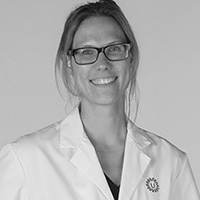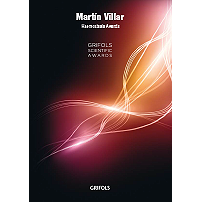Lize Van Vulpen
Disease modifying options for hemophilic arthropathy – the role of anti-inflammatory therapies

A major unmet need in hemophilia is a targeted therapy interfering with the pathophysiologic process of hemophilic arthropathy. Even today hemophilia patients experience joint bleeds and suffer from the subsequent joint damage. Investigating the potential of anti-inflammatory therapies in hemophilia is difficult. Hemophilia is a relatively rare disease, the response to bleeding is heterogeneous and the development of hemophilic arthropathy takes several years. Animal models also have limitations and cannot reliably represent the human situation.
Therefore, we want to set up an innovative cartilage-synovial tissue co-culture system optimized to study blood-induced joint damage. Using human tissue and integrating all relevant components into one system will significantly improve the translational value and approach the clinical situation best. Importantly, such a model will limit the need to use of animal studies and add to reduction of experimental animal usage.
We will subsequently test the potential different anti-inflammatory therapies. In the past decade, different studies by our group as well as by others, demonstrated the importance of inflammation in the development of HA. As such, the second goal of this project is to investigate which anti-inflammatory therapies have the potential to be a disease modifying drug for hemophilic arthropathy.
Curriculum vitae
Dr. Lize van Vulpen is an internist-hematologist at the Van Creveldkliniek, Center for Benign Haematology at the University Medical Center Utrecht in the Netherlands since September 2017. She obtained her medical degree (cum laude) in August 2007 at the University of Utrecht (the Netherlands) and started her training in Internal Medicine and Haematology thereafter. Her clinical training was conducted mainly at the University Medical Center Utrecht, but she also performed a traineeship at the Sheffield Haemophilia and Thrombosis Centre, Sheffield, UK under supervision of prof. M.M. Makris.
She interrupted her residency for a PhD-project on blood-induced joint damage at the department of Rheumatology & Clinical Immunology and the Van Creveldkliniek at the University Medical Center Utrecht under direct supervision of prof. dr. F.P.J.G. Lafeber, dr. R.E.G. Schutgens, and dr. S.C. Mastbergen. This research resulted in her thesis entitled ‘Iron and inflammation: a joint problem in blood-induced arthropathy’, and several international awards. She still is involved in translational research unravelling the pathogenesis of haemophilic arthropathy and searching for potential disease modifying interventions.


